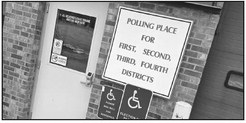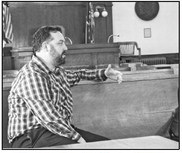Don’t toss out accountability during COVID-19 crisis
Emergency committees are scary things in a democracy.
During times of emergency and crisis, the people in the ancient Roman republic would appoint a dictator. The dictator’s term was set at six months, although he customarily laid down his powers as soon as the crisis passed.
Over time, the role changed from one vested with limited emergency powers to being a supreme authority not bound, nor held accountable by any rule of the people.
Local, county, state and federal governments have all declared states of emergency. The intent of these declarations is to streamline government action and allow government to be nimble and react quickly to face the challenges of an ever-changing crisis.
Those in power have the ability to expend funds, set new rules, ignore inconvenient rules and make decisions with only a token level of public oversight. At the same time, the U.S. Justice Department has sought expanded powers to bypass fundamental constitutional rights. At the state level, some cities and counties want to rewrite the fundamental rules governing elections.
America is walking on a tightrope and the longer the current crisis continues, the more the wind is starting to pick up.
Transparency and accountability are essential during the COVID-19 crisis as they are at all other times. Those sitting on emergency committees or who have been vested with additional temporary authority need to remember that this is just a borrowed power and that in America all power comes from the people through the power of the ballot box.
Part of what led the ancient Roman republic to slide into tyranny was that once dictators had a taste for absolute authority, they found it to be addicting. The challenge for American democracy and for the continued health of the republic will be to ensure that those in power during this and future crises have appropriate checks that prevent the addiction from taking hold.
Regardless of it is the governor issuing general orders, the county emergency committee adjusting personnel policies to address evolving needs or municipal officials making purchasing decisions without going through the normal bid process, it is vital that the decisions reached are limited to addressing the current situation.
Big decisions that are nonessential should be placed on the back burner. No matter how tempting it may be to sneak through potentially controversial decisions when people are preoccupied with worrying if their job or business will be a COVID-19 casualty, leaders must be circumspect in respecting the limited nature of their authority.
Accountability and transparency must remain at the heart of all government action through the new normal of the current crisis and beyond when Americans leave their homes and the world returns to normal.
Americans are being tested by the COVID-19 crisis and how well we do in this test will determine our health as a nation for decades to come.




